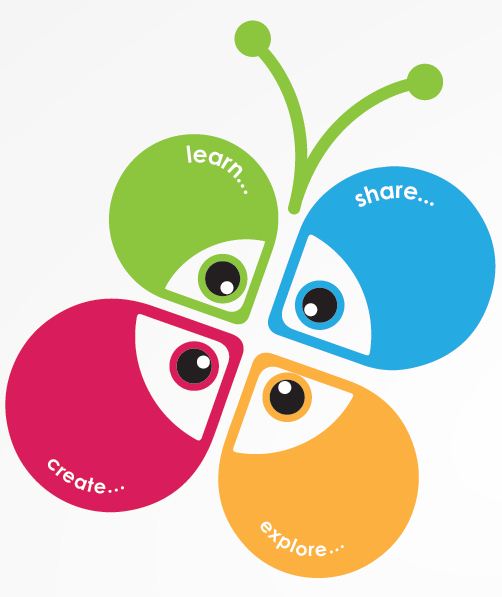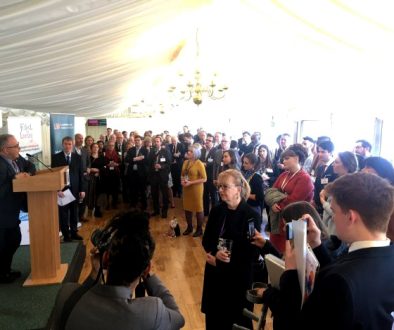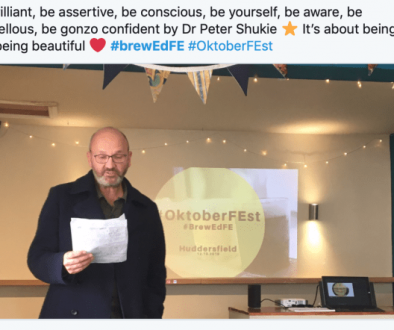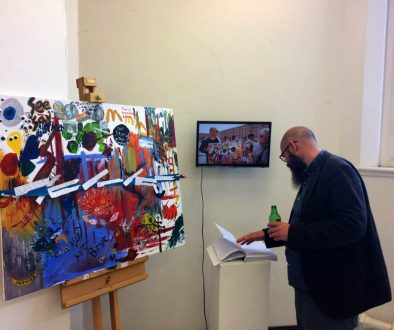Why COOCs offer real hope in the MOOC universe
COOCs replace the Massive with the Community, but more than that they replace the insistence of tradition, on hierarchy and on establishment with a re-energising of those long excluded, marginalised and (frankly) bored by the narrowing economic and cultural imperatives of the institutions.
The furore that has accompanied MOOCs over the last 12 months suggested COOCs, the Community version of the Massive, may have chosen a bad time to emerge! A dBIS report into the ‘maturing of the MOOC’ (September 2013) even makes explicit the coming of age of this most unusual of educational entities. The debate that seemed perhaps most compelling was the battle between the xMOOC and the cMOOC, the rebel alliance cMOOC promising a meritocratic world of sharing and growth against the dark heart of the institutional empire hoping to confirm its power in ALL areas of learning.
COOCs, for their part, are trying to emerge against much more real, in the way that kitchen sink drama is real, landscapes. While both cMOOCs and xMOOCs can call on vast resources and the growth of the network with expertise across the globe, COOCs continues to fight to establish tiny incremental changes on an error strewn website, working with course creators that are threatened with redundancy, benefits cuts and other finance related doomsday concerns. There are courses starting to develop, ideas being generated and new ideas of what we mean by teaching starting to form. The Popular Education background of COOCs finds more than a general allegiance with those revolutionary fighters for freedom, Myles Horton and Paulo Freire. We too find that once a course leaves the trodden path of the accreditation route, the classroom and the funders preferred notions of employability and economic advantage, well, you are reliant on new thinking. It is not enough to say that the education system doesn’t work for all, it is also important to create a way of thinking about the future that is open, creative and optimistic. The development of COOCs is more than opening up the star professor to a wider populace, it is reawakening the populace to the teaching of itself. The more the xMOOC suggests that its beneficence is engaging, and the media and the ecology of education ponder what MOOCs mean, the more any alternative for new ways of being start to disintegrate. Even the future of education remains tarnished by the hierarchical concerns of its past. MOOCs may not have all the answers, they don’t need to have. They just need to set markers in the virtual realm that remind anyone daring to trespass on the institutional ownership of learning that they do so in the shadow of the giants – and their shoulders don’t require any footprints on them, thank you very much!
The Popular Education of the EduPunk examples of Jim Groom are exciting and continue to inform the ethos, the energy and the dreams of COOCs. Like any kitchen sink drama, while the Coronation Street COOCs dowdily emerge amidst the glamour and light of the Dallas-like headlining MOOCs, the threat of being ripped off, embarrassed, ridiculed and ignored is grater with every step down the ladder. Yet, the salvation, the hope, the dream itself comes from the very purpose of the COOCs ideal itself. The Community. The Community may be geographic, it may be built on a shared interest or a set of ideals. Significantly though, the Community must be able to support itself and create its own ideals and expectations. While MOOCs have no option but to reassert who the teachers are, and what they should be teaching (even f the format and the cost is currently undergoing change) COOCs need to explore just what is possible with teaching and learning. Do we actually need teachers at all? If we develop new communal learning what would it look like? If technology, knowledge, community and pedagogy can all be radically reformed, what results would we get?
COOCs is not a kitchen sink drama really. It is not a situated picture of moribund acceptance and a grainy image of the way things have become. It is a bright possibility, an energy driven opportunity to explore new ways of being – as learners, as teachers, as both. No limit to exploration exists beyond those limits of people, and people with technology. Removing the constraints of a hierarchical canon, of a grand narrative, of a curmudgeonly educational government style, losing the emphasis on employability, economic imperatives, the tightened constraints of those that aren’t involved in the teaching or the learning but seem to insist on the way anyone else goes about it. Without the straitjacket, as we start to wave our arms around, craning our neck up to the sun, rolling our shoulders free of the yolk of a curriculum, what can we do next? It is not technology that leads us to COOCs, important to note that that too might be what we decide to revisit. Did Facebook and YouTube emerge as the evidence of a newly digitised planet because of their technological glory? We think not. It was their emphasis on sharing, the potential for a common good, a shared awareness and an opportunity for all of us to be included that characterised their appeal. COOCs too ask for that, a sharing of knowledge, a willingness to explore, a desire to do good. We don’t need star lecturers, or gold leaf institutions, we need you. We need each of you. The folk educators are the future not because the institutions are incapable of reaching everyone, but because they are not interested in everyone, they don’t know everyone and as such they can not be the only option for everyone. Keri Facer talks of ’clever optimism’ and ‘stupid optimism’ and avoiding the latter to make meaningful decisions based on what is possible. What can be clearer that learning is possible within our communities? Excluded from the institutions and caught in the trap that says this exclusion is their own fault. While colleges and universities get narrower and narrower in what they offer, they also own the languages of inclusion, of opportunity of growth. Like Weber’s iron cage, the reduction of choice is linked to the austerity caused by the community as a place of welfare and dependency. The language of hope and inclusion is owned by the educational elite who promise a brighter future if we stay with them, adhere to their knowledge and recognise their ability. The cage encompasses even the notion of escape!
COOCs can be used to seek within the community what we want to learn and how we want to learn it. It is not stupid optimism, or magical thinking as Virginia Eubanks wrote in Digital Dead Ends, it can happen now, it can happen through you. How will we move in a world of learning and teaching not confined by established roles of teacher and student, of social classes confirmed and exemplified by the world of the institution, by titles and by expectation? I am looking forward to working on COOCs as they emerge and hope you will join us too. You have nothing to lose but your chains.
Peter




